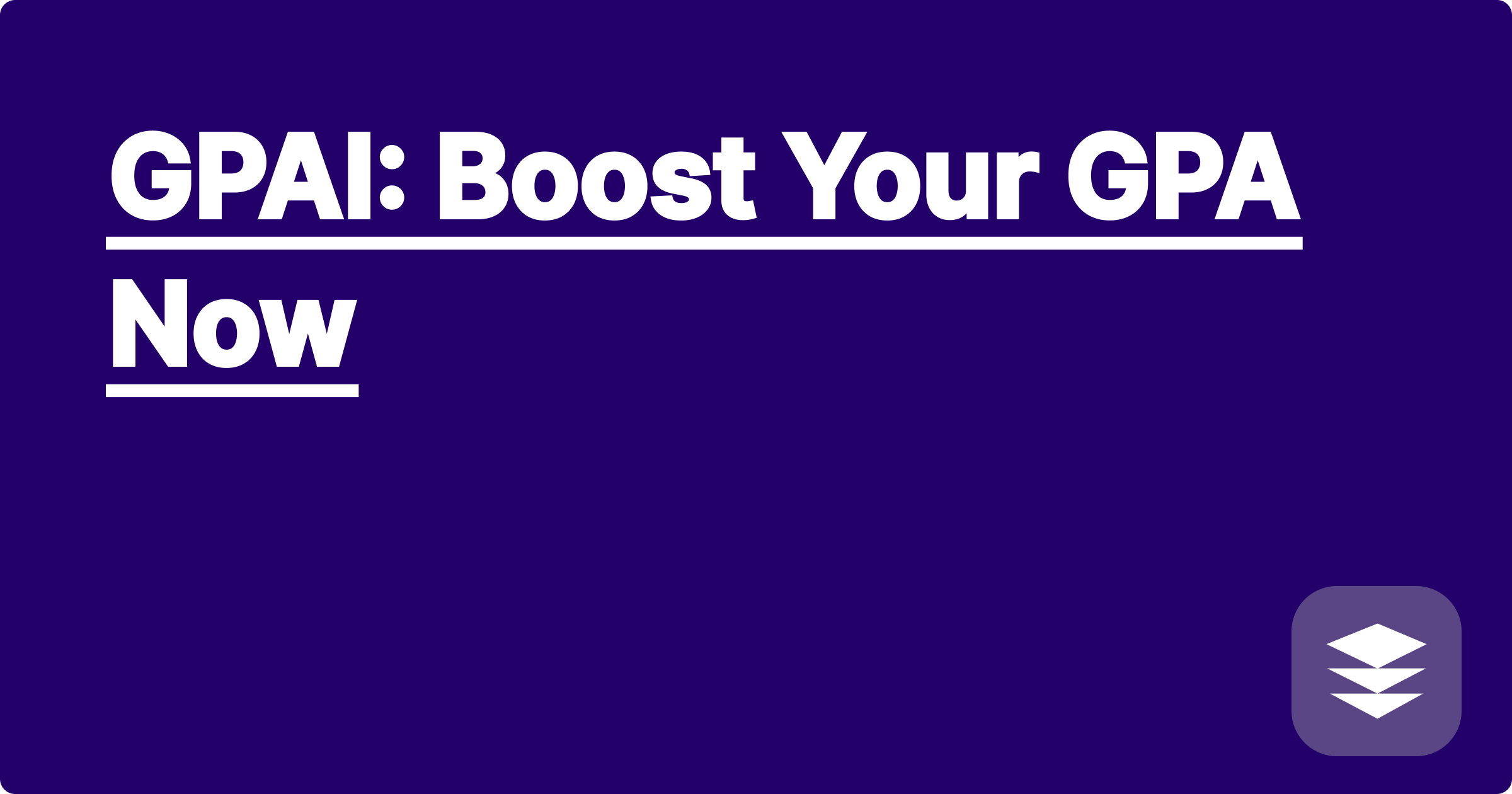
The demanding landscape of STEM education presents a unique challenge: balancing rigorous coursework, complex problem-solving, and extensive research while maintaining a competitive GPA. This challenge is further amplified by the ever-expanding knowledge base within STEM fields, requiring students and researchers to constantly adapt and learn new concepts. Fortunately, the rise of artificial intelligence offers powerful tools to navigate these complexities and unlock new pathways to academic success. AI can be a game-changer, providing intelligent assistance with everything from understanding difficult concepts and managing time effectively to generating creative solutions and improving research efficiency.
For STEM students and researchers, leveraging AI is no longer a luxury but a necessity to stay ahead of the curve. A high GPA opens doors to prestigious graduate programs, research opportunities, and competitive career paths. AI tools can empower students to deepen their understanding of complex subjects, optimize their study strategies, and enhance their overall academic performance. By embracing these technologies, STEM students and researchers can not only improve their GPA but also develop crucial skills for navigating the increasingly AI-driven world of science and technology.
STEM fields are characterized by their intricate theories, abstract concepts, and demanding problem-solving requirements. Students often struggle with grasping complex mathematical formulas, understanding intricate scientific principles, and applying these concepts to real-world scenarios. Furthermore, the sheer volume of information students need to process can be overwhelming, leading to inefficient study habits and ultimately impacting their academic performance. Research in STEM disciplines requires meticulous data analysis, literature review, and the development of novel experimental designs. These tasks can be time-consuming and require specialized expertise, often posing significant challenges for researchers, especially those starting their careers. Traditional study methods often fall short in addressing these complexities, necessitating the adoption of more advanced and intelligent tools.
Artificial intelligence offers a powerful suite of tools to address the challenges faced by STEM students and researchers. AI-powered language models like ChatGPT and Claude can provide comprehensive explanations of complex concepts, generate practice problems, and offer personalized feedback on assignments. These tools can break down intricate theories into easily digestible chunks, allowing students to grasp the underlying principles more effectively. Wolfram Alpha, a computational knowledge engine, excels at solving complex mathematical equations, performing symbolic computations, and providing step-by-step solutions. This can be invaluable for students grappling with challenging mathematical problems or researchers needing to perform complex calculations. By integrating these AI tools into their workflow, STEM students and researchers can unlock new levels of efficiency and understanding.
To begin using AI tools effectively, start by identifying the specific areas where you need assistance. If you are struggling with understanding a particular concept, you can use ChatGPT or Claude to provide an explanation in simpler terms. Simply input your query, such as "Explain the concept of quantum entanglement," and the AI will generate a detailed response. For complex mathematical problems, Wolfram Alpha can be invaluable. Input the equation or problem you need to solve, and Wolfram Alpha will not only provide the answer but also show the steps involved in arriving at the solution. When conducting research, use AI tools to summarize lengthy research papers, identify relevant literature, and even generate potential research questions. Remember to always critically evaluate the information provided by AI tools and cross-reference it with reliable sources.
Consider a student struggling with the concept of derivatives in calculus. They can input "Explain the derivative of x^2" into Wolfram Alpha. Wolfram Alpha will provide the answer (2x) and explain the concept of derivatives, offering graphical representations and examples. A researcher investigating the properties of a specific material can use ChatGPT to summarize recent research papers on the topic. By inputting a prompt like "Summarize recent research on graphene," the researcher can quickly gain an overview of the current state of knowledge. For coding assignments in computer science, AI tools can be used to generate code snippets, debug existing code, and explain complex algorithms. For example, a student can ask ChatGPT to "Write a Python function to calculate the factorial of a number."
To maximize the benefits of AI in STEM education and research, it's crucial to develop effective strategies for using these tools. Don't rely solely on AI for answers. Instead, use it as a supplement to your learning and research. Always verify information provided by AI with trusted sources and textbooks. Experiment with different AI tools to find the ones that best suit your learning style and research needs. Engage actively with the AI by asking clarifying questions and exploring different approaches to problem-solving. By integrating AI tools strategically into your workflow, you can significantly enhance your learning and research outcomes.
In conclusion, the integration of AI tools into STEM education and research presents a transformative opportunity. By embracing these technologies, students and researchers can overcome the challenges of complex concepts, demanding workloads, and ever-evolving knowledge bases. Start exploring the potential of AI today and unlock new pathways to academic success. Begin by identifying your specific needs and experimenting with different AI tools. Develop a strategic approach to using these tools, ensuring you always verify information and actively engage with the AI. By embracing the power of AI, you can not only boost your GPA but also equip yourself with the essential skills for navigating the future of STEM.